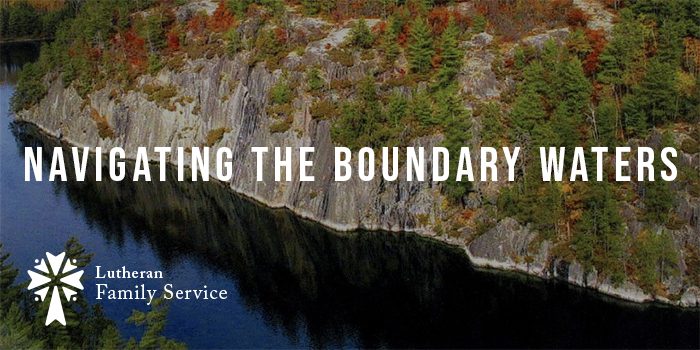Posted on February 28, 2022 by Toni Larson, LISW
Church Worker Wellness

Other Blog Topics
The boundary waters of northern Minnesota and southern Canada is a one million-acre protected wilderness that is explored by outdoor adventurers of all skill levels every year.
The pristine ancient setting, the beauty of the surroundings, and the peaceful trek by foot or canoe lure families, friends and adventure groups to test their abilities to survive with few modern conveniences.
Though referred to as boundary waters, there is no clear demarcation of one nation from the other that is easily visible at all times. What is clear is that Canada and the United States have different laws and rules that govern their sovereignty and carry great importance to each nation. To coexist peacefully, it is important for each to understand the other. And so it is with church workers and their congregations.
Maintaining healthy boundaries is a challenging but vital task for pastors and other church workers. Without healthy boundaries, workers run the risk of compassion fatigue, interpersonal conflict and role confusion.
Dr. Henry Cloud and Dr. John Townsend in their book “Boundaries” noted:
“Made in the image of God, we were created to take responsibility for certain tasks. Part of taking responsibility, or ownership, is knowing what is our job, and what isn’t. Workers who continually take on duties that aren’t theirs will eventually burn out. It takes wisdom to know what we should be doing and what we shouldn’t. We can’t do everything.”
Cloud and Townsend go on to describe the following types of boundaries:
A useful exercise for pastors and church workers is to do a “boundary check”. Ask yourself questions similar to these.
Looking at the biblical implications of boundaries, this website https://www.gotquestions.org/boundaries-biblical.html offered the following:
“Boundaries teach us to accept one another as being different yet still valuable. God uses boundaries to help us appreciate the differences in people rather than be upset by them. A godly friend tells us what we need to hear, not necessarily what we want to hear (Proverbs 27:6). We are free to be ourselves with others if we control ourselves. Boundaries are not selfish when we use our freedom to serve and love one another because we are keeping our own flesh under control (Galatians 5:13). In a godly relationship, both people are free to love each other and to be themselves because neither is using or manipulating the other.”
Navigating the boundary waters may take an experienced guide or a detailed map. If you are struggling with boundary issues, a Lutheran Family Service counselor can assist with sorting through the wilderness and getting on the right trail. The journey may take some effort, but the end result is worth it for yourself, your family, and your ministry. Reach out today using our webform HERE.
Toni Larson, LISW
Director of Church Worker Wellness
Lutheran Family Service
More posts about Church Worker Wellness
